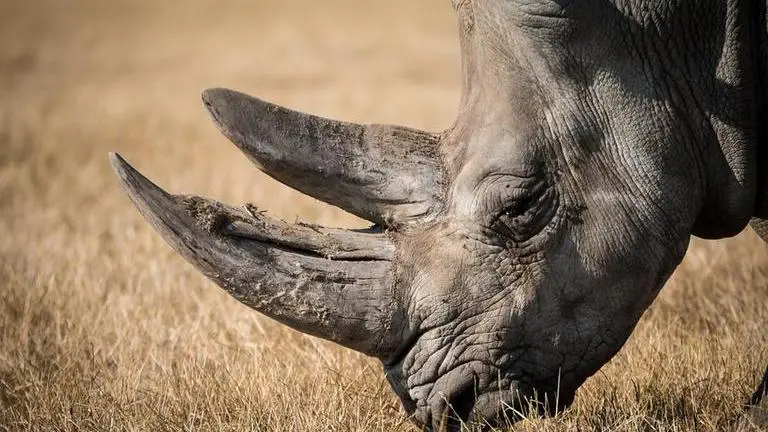Updated 4 April 2021 at 12:00 IST
COVID-19 weakens fight to save Namibia's rhinos
Animal conservationists have warned that rhino slaughtering for the illegal trade of their horns could soar again in Namibia as the coronavirus pandemic has forced many anti-poaching organizations to back down due to the lack of funds.
- World News
- 2 min read

Animal conservationists have warned that rhino slaughtering for the illegal trade of their horns could soar again in Namibia as the coronavirus pandemic has forced many anti-poaching organizations to back down due to the lack of funds. Some wildlife reserve owners urged countries to legalize the sale of rhino horns, saying it would decrease their market value and prevent further rhino slaughtering.
Namibia is home to the majority of black rhinos, members of an endangered species usually looked after by private citizens at their own cost and safety.
Anti-poaching units have been deployed to patrol the territory for years, but rhino breeder Jaco Muller told British broadcaster Sky News they were forced to fire people due to the lack of money.
With the tourism and safari industry halted, many anti-poaching organizations have backed down due to the lack of funds, leaving a clear way for poachers to kill rhinos and sell their horns on the black market.
Advertisement
Rhinos horns are made of keratin, the same substance found in human nails, and has no protein or healing values, but in some Asian countries is considered a symbol of wealth. The rhino horn has no legal value, and under international law, it is illegal to sell it or buy it, but on the black market it can be sold for millions of dollars.
Muller, who has encouraged Namibia to legalize horns selling, said one 15-16-kilogram-horn can be worth up to two million U.S. dollars on the black market. Namibia has been struggling with rhino slaughtering for years, but it has seen a decrease in the illegal practice during the coronavirus lockdown. But Juliette Erdtsieck, conservationist, warned that poachers are going to ''catch up for what they've lost out on,'' when the pandemic is over.
Advertisement
Image: Pixabay
Published By : Associated Press Television News
Published On: 4 April 2021 at 12:00 IST
